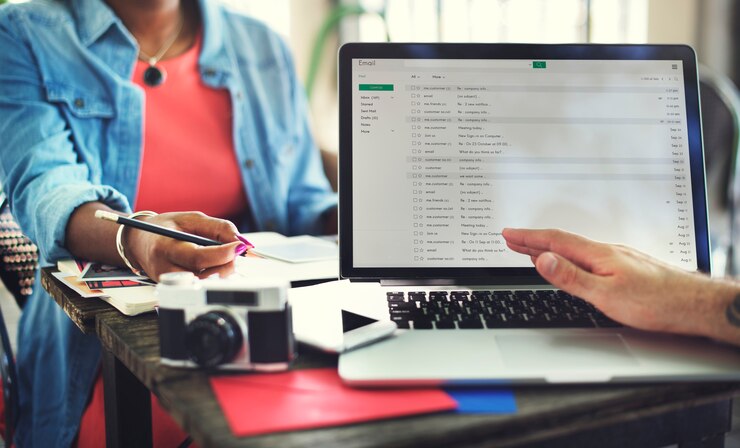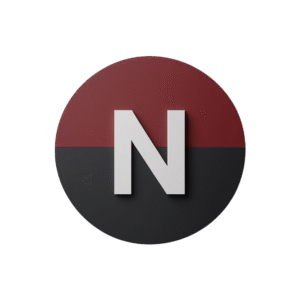Introduction
In today’s fast-paced digital economy, managing finances has gone far beyond the traditional ledger book or spreadsheet. Whether you’re a small business owner, a freelancer, or part of a large enterprise, choosing the best accounting software can make or break your financial efficiency. Modern business demands real-time insights, secure data handling, and mobility — all of which can be achieved through online accounting software.
This blog post dives deep into the world of accounting tools, guiding you through the features, benefits, challenges, and top choices available. Whether you’re upgrading from manual bookkeeping or migrating to a cloud-based system, this guide is for you.
💻 What is Online Accounting Software?
Definition
Online accounting software is a cloud-based platform that allows businesses to manage their financial transactions, track expenses, generate invoices, calculate taxes, and monitor cash flow — all via an internet connection.
Key Features:
- Access from anywhere, anytime
- Real-time data synchronization
- Integration with banks, payroll, and tax systems
- Multi-user collaboration
- Data backup and security protocols
🏆 Best Accounting Software: What Does It Mean?
The “Best” Depends on Your Needs
There is no one-size-fits-all. The best accounting software for a freelance graphic designer won’t be the same as what’s best for a multinational retailer.
Factors That Define the Best Accounting Software:
- Ease of Use – Intuitive dashboards, clean UI
- Customization – Tailor-made features for your industry
- Scalability – Grows with your business
- Security – Encryption, 2FA, backup systems
- Support – Chat, phone, or email support availability
- Value for Money – Clear pricing without hidden fees
🧾 Benefits of Using Online Accounting Software
1. Accessibility & Mobility
No more being tied to your office computer. Access your books from your phone, tablet, or laptop — wherever you are.
2. Real-Time Financial Overview
See up-to-the-minute changes in income, expenses, and cash flow, enabling faster decision-making.
3. Automation
Recurring invoices, bank reconciliation, payroll — automation reduces errors and saves time.
4. Tax Readiness
Most tools help you prepare for tax season with built-in tax calculation and reporting features.
5. Collaboration
Your accountant, financial advisor, or business partner can work with you in real-time without emailing endless spreadsheets.
🔍 Top Features to Look for in the Best Accounting Software
- Dashboard & Reports – Visual insights into performance
- Invoicing & Billing – Create and send branded invoices
- Expense Tracking – Link bank accounts and categorize spend
- Payroll Integration – Seamless salary and tax payments
- Multi-currency Support – For international businesses
- Mobile App Access – On-the-go financial control
- Audit Trail – Track user actions and changes
- Inventory Management – Essential for product-based businesses
🌐 Online Accounting Software: A Game Changer
Why Go Online?
Traditional desktop-based accounting software is slowly becoming obsolete. Online accounting software offers cloud-based storage, updates without installations, and collaborative capabilities.
Examples of Online Accounting Tools:
- QuickBooks Online
- Xero
- Zoho Books
- Wave Accounting
- FreshBooks
📊 Comparing the Best Accounting Software
| Software | Best For | Starting Price | Notable Features |
|---|---|---|---|
| QuickBooks Online | Small to mid-business | $30/month | Bank sync, payroll, tax tools |
| Xero | Freelancers to SMBs | $13/month | Unlimited users, strong UI |
| Zoho Books | SMEs | $15/month | Inventory, automation, client portal |
| Wave | Startups | Free | Invoicing, scanning, basic payroll |
| FreshBooks | Freelancers | $17/month | Time tracking, client communication |
🧠 Mistakes to Avoid When Choosing Accounting Software
- Ignoring scalability – Your business will grow, so should your tools.
- Overlooking hidden fees – Always read the fine print.
- Not checking integrations – Make sure it works with your bank, CRM, etc.
- Choosing based only on price – Cheapest isn’t always best.
- Neglecting customer support – You’ll need help at some point.
📈 How Online Accounting Software Helps Different Industries
1. Retail
- Sales tracking
- Inventory control
- Integration with POS systems
2. Freelancers
- Time tracking
- Client invoicing
- Tax reporting
3. E-commerce
- Payment gateway syncing
- Order-based bookkeeping
- Multi-currency handling
4. Startups
- Budgeting and forecasting
- Payroll and contractor payments
- Cash flow management
🔐 Security in Online Accounting Software
How Is Your Data Protected?
- SSL encryption
- Two-Factor Authentication (2FA)
- Regular data backups
- Role-based user access
Your financial data is sensitive. Choose platforms with a proven track record in security.
🌍 Online Accounting in a Global Context
With cross-border transactions becoming the norm, your software should handle:
- International taxation (e.g., VAT, GST)
- Currency conversions
- Global compliance regulations
💰 Pricing Models: What to Expect
- Freemium: Free basic features, paid add-ons (e.g., Wave)
- Tiered Pricing: Varying plans based on features (e.g., QuickBooks, Zoho)
- Per User: Some charge per team member
- Flat Rate: Monthly/annual with all-inclusive features
Always calculate the total cost of ownership before subscribing.
🚀 The Future of Online Accounting Software
- AI-driven insights and forecasting
- Chatbot-based accounting assistants
- Voice-command accounting
- Blockchain-based secure ledgers
- Smart tax compliance tools
✅ Final Thoughts
Selecting the best accounting software is a strategic move that can streamline operations, enhance decision-making, and support business growth. With the rise of online accounting software, businesses no longer need to worry about outdated systems, data loss, or limited accessibility.
Embrace the cloud, automate your processes, and give yourself more time to focus on what matters — growing your business.
❓ FAQs
1. What is the difference between online and offline accounting software?
Online accounting software operates in the cloud, offering access from anywhere, while offline software is installed on specific devices and often lacks real-time collaboration or updates.
2. Can I use online accounting software on my phone?
Yes, most platforms offer mobile apps for both iOS and Android, letting you manage finances on the go.
3. Is online accounting software secure?
Most reputable providers use top-tier encryption, secure servers, and regular backups to ensure your data is safe.
4. Which is the best free online accounting software?
Wave Accounting is one of the best free tools available, especially for freelancers and startups.
5. How do I migrate from traditional accounting software to an online platform?
Most cloud solutions offer data import tools, guides, or even onboarding specialists to help transfer data from spreadsheets or desktop programs.


